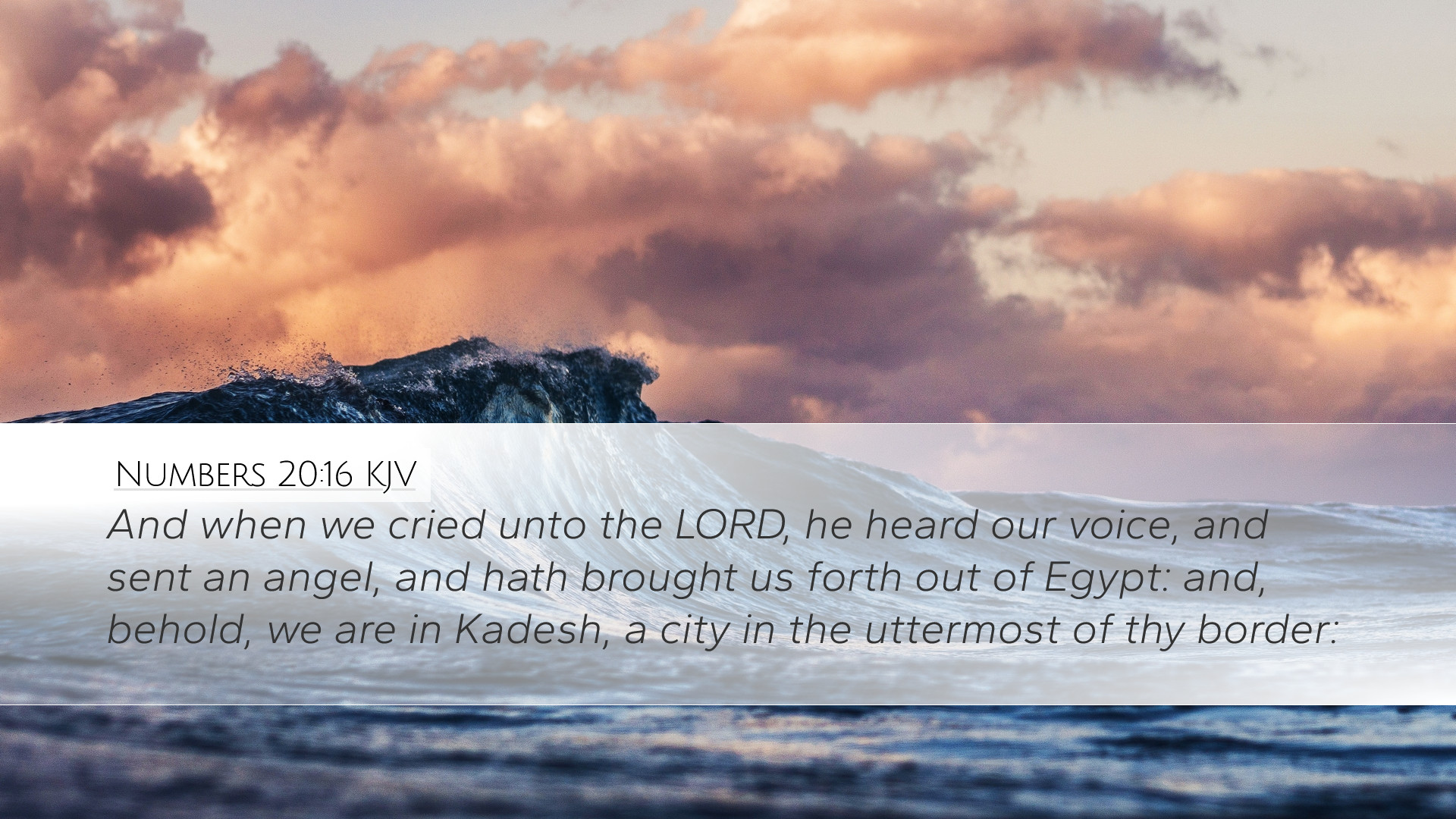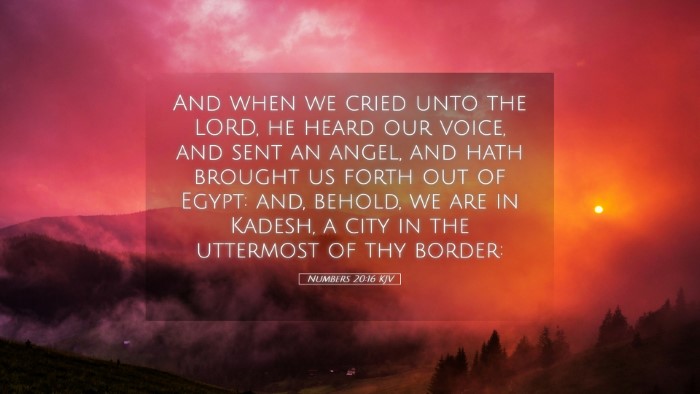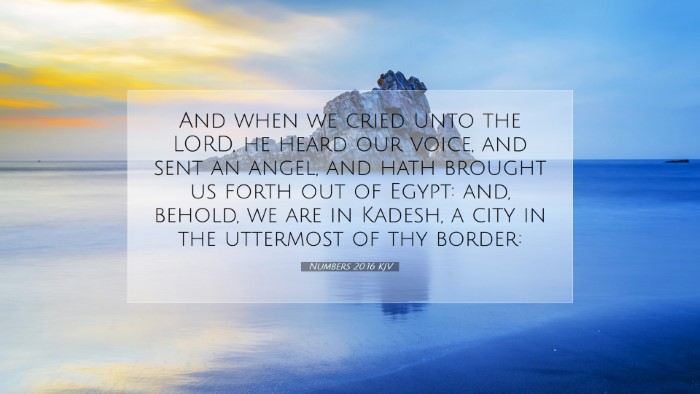Commentary on Numbers 20:16
Numbers 20:16 states: "And when we cried unto the LORD, He heard our voice, and sent an angel, and hath brought us forth out of Egypt; and, behold, we are in Kadesh, a city in the uttermost of thy border."
Contextual Overview
This verse is a part of the narrative detailing the journey of the Israelites from Egypt through the wilderness. The need for divine intervention and leadership during this challenging period is a recurring theme throughout the Book of Numbers.
The statement "when we cried unto the LORD" highlights the Israelites' reliance on God amidst their trials and the subsequent acknowledgment of His deliverance.
Theological Insights
- Divine Deliverance: The mention of God's deliverance from Egypt emphasizes His faithfulness. God is portrayed as actively responding to the cries of His people, which is reflective of His covenantal relationship with them.
- Role of Angels: The text refers to an angel sent by God, indicating that God often uses intermediary beings to accomplish His purposes. This notion aligns with the biblical understanding of angels as ministering spirits (Hebrews 1:14).
- Significance of Kadesh: Kadesh is a pivotal location in the journey of Israel; it serves as a geographical and spiritual boundary. Their presence here underscores themes of transition and preparation for entering the Promised Land.
Commentary Contributions
Matthew Henry: Henry emphasizes the importance of prayer in the life of the faithful, stating, "Their cries went up to heaven, and therefore they were heard." He points out that God's willingness to respond to their cries serves as a powerful reminder of His mercy.
Albert Barnes: Barnes highlights that the Israelites, in remembering their cries and God's response, are acknowledging His sovereignty and goodness. "This memorial of their deliverance is intended to strengthen faith," he states, encouraging believers to look back at God's faithfulness in their lives.
Adam Clarke: Clarke discusses the concept of the "angel" and refers to it as a manifestation of God’s presence among His people. He elucidates that divine assistance is often sent in ways that are personal and accessible, reinforcing the notion of God’s intimate involvement in the affairs of Israel.
Reflective Applications
For pastors, students, theologians, and Bible scholars, this verse and its commentary invite reflection on the nature of prayer and divine intervention. The following applications are significant:
- The Power of Prayer: Emphasizing prayer in ministry as a direct channel to experience God's assistance and presence.
- Witnessing God’s Faithfulness: Encouraging congregants to share personal testimonies of God’s deliverance as a means of building faith within the community.
- Understanding God’s Providence: Examining how God prepares His people for future challenges and greater responsibilities, particularly in the context of spiritual leadership.
Conclusion
Numbers 20:16 is not merely a historical recollection of Israel's journey; it serves as a profound reminder of God’s unwavering commitment to His people. In studying this verse, one can derive rich theological insights about prayer, divine intervention, and community remembrance.
As leaders and scholars reflect on this passage, they are called to not only acknowledge the historical significance but also to apply its principles for current ecclesiastical contexts, fostering a deeper understanding of God’s character and His active role in the lives of believers.


